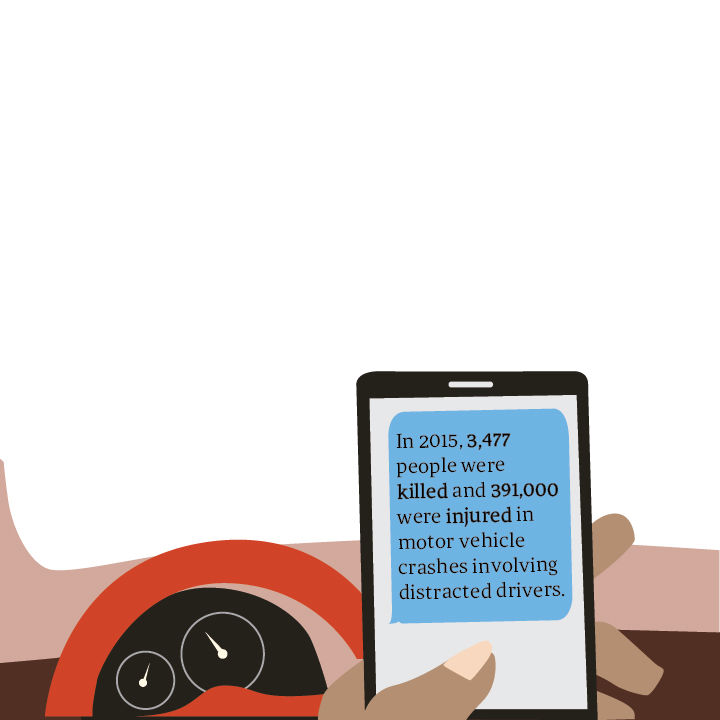Textalyzer sends distracted driving message to motorists
Textalyzer sends distracted driving message to motorists
January 21, 2018
The future of texting and driving prevention could come to Chicago, but it will not come without controversy. The new prevention technology is already under fire prior to its release.
The textalyzer—a prototype software that scans a cellphone’s operating system log to determine which apps were opened, tapped on or swiped and when they were in use—could be used to identify distracted drivers after accidents, according to Jody Wacker, vice president of marketing at Cellebrite—the Israeli company developing the textalyzer.
Currently, the device may be used after accidents to determine whether the driver was texting and driving, but only if the officer has probable cause.
However, using the software to intercept distracted drivers is still nine–12 months away from its implementation and will need additional laws to be passed for Cellebrite to build the software in accordance to each state’s laws, according to Wacker. Tailoring the device to each state’s laws will avoid the illegal search challenges, she said.
Although Chicago has passed no laws to allow this device to be used, Cellebrite did meet with Chicago aldermen to discuss the topic, but no official decisions were made, Wacker said.
“[Cellebrite] is looking to start a [shift in thinking]. Similar to the way it’s not popular to drink and drive, there’s been a shift in the mindset,” Wacker said.
In 2015 there were 69,000 accidents related to cellphone usage, 442 of them were fatal, according to a 2017 National Highway Traffic Safety Administration study.
Seven out of 10 drivers engage in smartphone activities while driving, ranging from social media use to web surfing, according to a May 2015 AT&T study.
“As a dad whose daughter was killed by distracted driving, I love the idea of the textalyzer,” said Joel Feldman, president of End Distracted Driving—an anti-texting and driving group. “As a person who values my privacy, I have concerns about it.”
Despite its potential to reduce cellphone-related accidents, the textalyzer has drawn public concern about its ability to scan cellphones for information.
“The question that really permeates this is whether giving that kind of power and authority over to an officer on the street based on their judgment is the right thing to do,” said Ed Yohnka, director of Communications and Public Policy at the American Civil Liberties Union of Illinois. “The reality is intruding into someone’s personal information is a serious thing, and it ought to be taken only when it’s necessary.”
Distracted driving is serious, but the textalyzer does not offer anything new, Yohnka said.
If police officers want to search someone’s cellphone, they can obtain a warrant. The problem with authorizing the textalyzer is fewer individuals are involved in the decision-making process, Yohnka said.
The textalyzer can distinguish between which apps were in use like Facebook and Twitter, but at this point, the software cannot see to whom an individual is sending messages, Wacker said.
Texting and driving is like playing Russian Roulette, Feldman said. It may not happen now, it may not happen tomorrow, but if you continue to text and drive you will get into an accident, he added.
“I hope we can get the textalyzer in use in a way that protects the public from crashes, and at the same time protects our privacy,” Feldman said.








